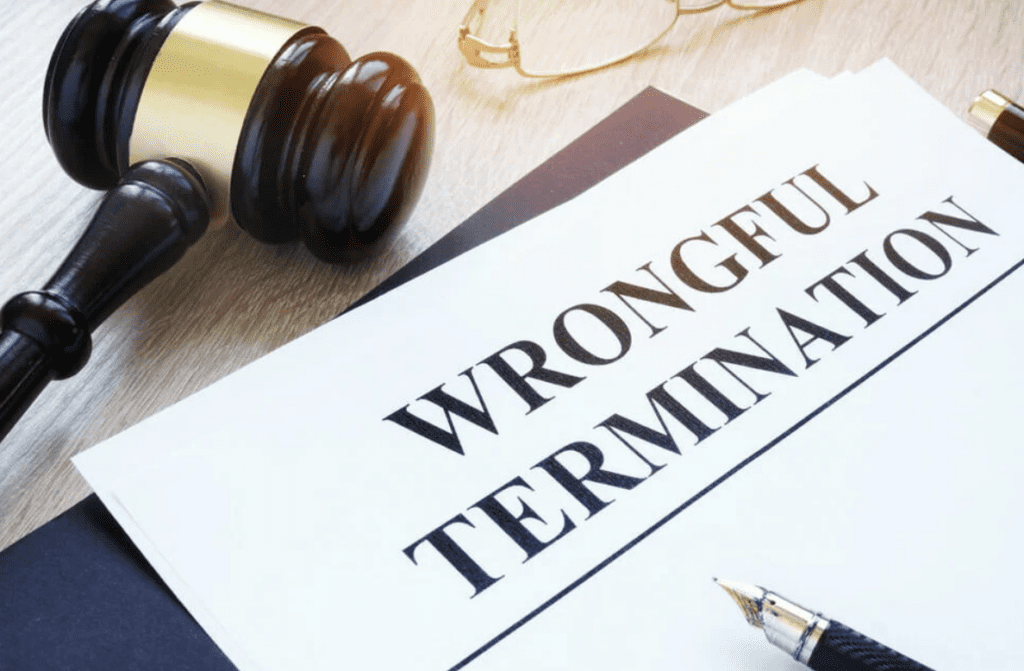Wrongful termination can be challenging to recognize, especially considering that Virginia is an at-will employment state. That means employers can fire employees at any point during their term with a company, without notice and without cause.
That does NOT mean, however, that all terminations are legal or above board. Whenever firings violate federal employment laws and workers’ rights:
Table of Contents
Toggle5 Essential Terms in Virginia Severance Agreements
Before signing your severance agreement, it is essential to review all of the terms so you understand what you are agreeing to. A few critical terms to be aware of include the following:
- These situations could constitute wrongful terminations.
- The workers who have been wrongfully terminated may have the right to sue and hold their former employers accountable.
To help you determine whether you may have been the target of this illegal action, here are some of the most common signs of wrongful termination.
5 Red Flags of Wrongful Termination
Wrongful termination doesn’t look exactly the same from one case to the next, and some instances of wrongful termination can be far more subtle than others. Nevertheless, most employees who are subjected to wrongful termination in Virginia and across the U.S. tend to experience at least one of the following.
1. You were fired because of your features or background.
If an employer gives you a pink slip, it could be a wrongful termination if you were fired because of your:
- Age
- Disability
- Ethnicity
- Gender
- Race
- Religion
Consequently, many of these claims end up uncovering workplace discrimination in the hiring process, performance reviews, and more.
2. You were fired for exercising your civic duties.
Federal laws protect your rights to honor your civic duties without putting your job on the line to do so. Those civic duties could include voting, serving jury duty, or reporting to active duty military service.
So, if you need to step away from your job to engage in these government-related activities:
- Your position should be protected under federal law.
- If it’s not and you’re fired for leaving work to vote, be on a jury, or serve in the military, that firing would likely be a wrongful termination.
3. You were fired after taking a leave of absence from work.
Aside from civic duties, health issues could pull you away from work. If they do, these absences would likely be protected under the Family and Medical Leave Act (FMLA). That could include leaves associated with:
- Pregnancy and childbirth
- Chronic health issues
- Newly diagnosed conditions
- Physical or mental health issues
- Health problems a family member has
If you’re axed from your job because you got sick, pregnant, or needed to care for a sick family member, again, you could be looking at a case of wrongful termination.
4. You were fired after filing a report against your employer.
You have the right to report any illegal activities your employer may be engaged in, including (but not limited to) violations of:
- Labor and wage laws
- Health and safety codes
- Financial regulations
- Environmental laws
5. The firing violates the terms of your employment contract.
Your employment contract could contain specific terms, timelines, and grounds for your job and your engagement with a given employer. If that employer fails to live up to their end of the contract, firing you could breach the agreement and, once again, be an instance of wrongful termination.
Talk to a Top Wrongful Termination Lawyer to Find Out More About Your Rights
Recognizing whether you have a wrongful termination claim can be challenging — and it’s just the first step in the process of achieving justice if you have been wrongfully terminated from a former job.
That can be an uphill battle that’s hard to win alone, especially if you’re going up against deep-pocketed, lawyered-up opponents. To level the playing field and get better chances of success with wrongful termination claims, contact The Spiggle Law Firm.
Our wrongful termination attorneys have deep experience representing clients through all types of claims, providing fierce, strategic representation in and out of court.
If you decide to blow the whistle on an employer’s wrongdoings — and if your employer then fires you for being a whistleblower — that firing would likely be a wrongful termination.
For a detailed discussion on how we can assist you, contact us for a free case review. Call us at (202) 449-8527 or complete our online contact form to get started.





